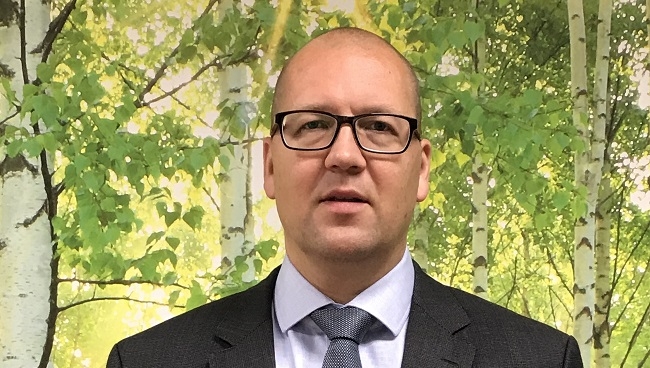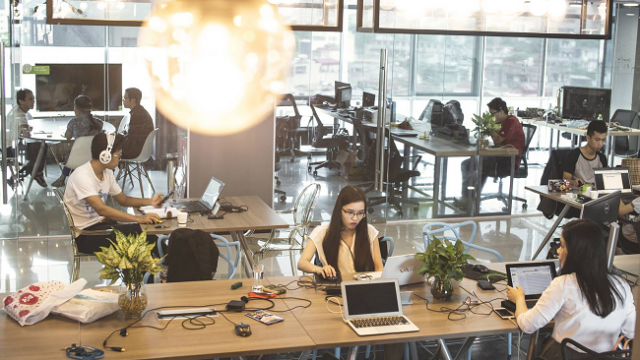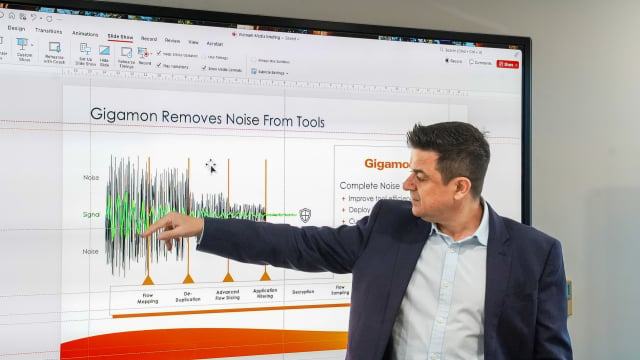Leader Talk
Lessons for Vietnam from startup center of Europe
The process of Finland to become the world's fourth most innovative economy and Europe's startup center has offered precious lessons for countries wishing to build a startup ecosystem like Vietnam.

There are currently about 30 startup investment funds, 20 incubators and 10 business promotion organizations operating in Vietnam to support the development of innovative startups.
However, despite having enough factors for its development, the startup ecosystem in Vietnam still cannot really make the most of its potential into reality mostly due to the lack of connection among startup supporters, according to Deputy Minister of Science and Technology Tran Van Tung.
Whereas, a nation in Europe - Finland, which has the population of only 5.4 million people, has a very effective innovative startup ecosystem.
According to the World Economic Forum (WEF) 2017, Finland was ranked the fourth innovative economy in the world. Its capital Helsinki has long been seen as the startup center of the world.
Talking with TheLEADER, Counsellor, head of Development Cooperation, Embassy of Finland in Hanoi Marko Saarinen said that Finland has an active startup community which has developed significantly for the past ten years.
According to Marko, the startup move has become popular among youngsters in Finland. On average, there are about 4,000 to 5,000 new startup enterprises established annually in this country and the startup supporting activities have also been promoted.
Every year, about 17,000 startups, investors, and journalists coming from more than 100 nations in the world gather in the Slush event in Helsinki. This is the world's leading startup and technology event where startups and tech talents meet with top-tier investors and leaders of large international corporations.
Besides, there is also the Slush Global Impact Accelerator program (Slush GIA) created in collaboration with the Ministry for Foreign Affairs of Finland and multiple global partners.This is a program designed to assist newly established startups and introduce exciting business opportunities in newly emerging markets such as Vietnam.
Marko Saarinen said that the startup community plays an important role in the innovation of Finland’s economy.
Comparing to Vietnam after four years living here, he stated that Finnish has developed quite stronger and go further. Despite having a large market, Vietnam still needs to establish and develop its startup ecosystem.
“In Finland, we have very good national innovative startup ecosystem ranked the top of the world,” said Marko.
He assessed that startups in both nations had focused a lot on technology; however, Finnish enterprises had more opportunities to access to international funds and partners.
“Despite having good progress, Vietnam still has a lot of things to do, including the removal of legal barriers that may hinder the development of startups in Vietnam,” he added.
Marko highlighted that universities have a crucial role in the startup ecosystem of Finland, supporting students greatly and cooperating with enterprises in research and development.
Assessing the opportunities for startups in Vietnam, representative of Finland Embassy said that Vietnam is bringing great opportunities for startups with strong economic development in recent years, the large domestic market, and deeper integration into the international market.
“Vietnam is promising for startups with its strong economic development in the passing years. Finland has cooperated with the Ministry of Science and Technology in supporting the development of innovative startup ecosystem in Vietnam, which has produced the positive result in recent years,” said Marko.
“Vietnam’s startup ecosystem shows signs of positive development in the passing time, with the capacity of both startups and services providers having been enhanced,” he added.
The representative of Finland Embassy stated that the cooperation between the two countries in education and training has been focused and produced the positive outcome, especially in promoting the connection between schools and enterprises.
In that context, Marko said that Vietnamese startups in particular and enterprises, in general, must face a lot of challenges, especially the competition in the domestic market. Therefore, Vietnam must invest more in research and development as well as innovative products and services.
For longer-term competitivity, reform of the education system is needed for higher quality human resources for the companies.
Sharing about the supports from Finnish government to the innovative startup activities in Vietnam, Marko said that the nation has implemented the Innovative Partnership Program (IPP) and worked closely with the Ministry of Science and Technology of Vietnam since 2009.
IPP has conducted a number of capacity building activities in line with international standards for individuals, organizations, and universities in Vietnam; granted certificates to more than 150 innovative trainers on innovation and startups from more than 50 universities and colleges nationwide.
Most of the training has been organized in Vietnam by Finnish and other international experts together with Vietnamese specialists. Since last year, executive training programs on innovation management, innovation funding and universities role in innovation and startup ecosystem have been organized in Finland, with a part of the training on innovation funding being organized also in Singapore.
The second stage of the €11 million startup supporting program of which €10 million is funded by Finnish government has been conducted. The first phase of the program was implemented in the period from 2009 to 2014 with the total budget of more than €7 million.
According to the Counsellor, head of Development Cooperation, Embassy of Finland, in addition to demonstrating new models, creating linkages between various stakeholders in the startup ecosystem and co-creation with those stakeholders have been of great importance.
Startup should avoid depending too much on preferential policies
Vietnam turns semiconductor vision into action
The global semiconductor industry is being reshaped by geopolitical tensions, shifting supply chains, and the surge of digital technologies.
Cutting red tape in APA approvals to speed up tax negotiations
The change in APA approval authority is expected to shorten processing time and enhance business proactiveness in international tax negotiations.
Enterprise cybersecurity is under threat from the inside
As hybrid cloud systems grow more complex, Vietnamese enterprises are struggling to detect cybersecurity threats moving laterally within their own networks.
Breakthrough for the international financial center ambition
The submission of the draft resolution on Vietnam’s international financial center to the National Assembly heralds a new developmental era for the country.
How leadership philosophy redefines hospitality in Nha Trang
More than just running a 5-star resort, Kristian Petersen is redefining the art of hospitality with a humane and sustainable leadership philosophy.
When organic becomes an inspiring wellbeing lifestyle
For Tyna Huynh, co-founder of Drinkizz, organic is not just a food choice but a way of life that fosters a deep connection between people, nature and community.










































